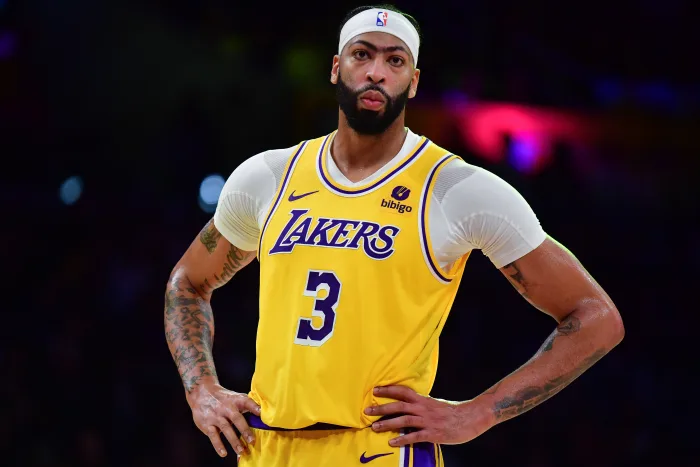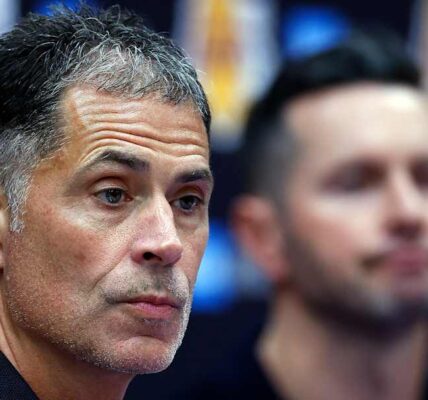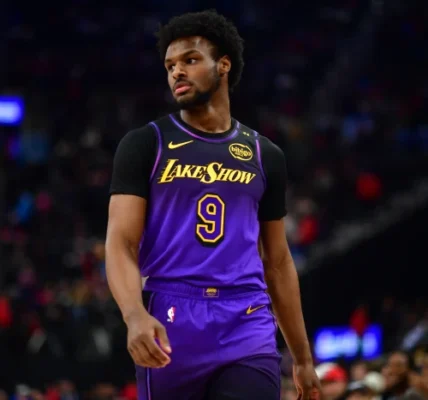4 Key Factors Behind the Lakers’ Trade of Anthony Davis to the Mavericks
4 Reasons Why Lakers Traded Anthony Davis to the Mavericks
In one of the most unexpected trades in NBA history, the Los Angeles Lakers made the bold decision to trade Anthony Davis to the Dallas Mavericks in exchange for Luka Doncic. For a team that had relied on Davis as its defensive cornerstone and co-star with LeBron James, parting ways with the All-NBA player was a difficult decision.
However, several key factors pushed the Lakers to make this blockbuster move, marking a significant change in the team’s long-term strategy.
Davis was enjoying one of his best seasons with the Lakers, averaging 25.7 points and 11.9 rebounds per game, while still being one of the top defenders in the league. However, concerns about his long-term health, the team’s future after LeBron James, and the opportunity to acquire a 25-year-old MVP contender in Doncic led the Lakers to make this move.
With the Western Conference becoming increasingly competitive and LeBron nearing 40, Los Angeles had to make a decision that would ensure both immediate success and future stability. This trade wasn’t just about talent; it was about the team’s vision for the future.
The Lakers were uncertain whether Davis could become the true face of the franchise after LeBron retired, while Mavericks GM Nico Harrison made it clear he sought a defensive star to build his team around. With concerns over Doncic’s conditioning in Dallas, both teams saw an opportunity to reshape their rosters, with Doncic never initiating the trade or requesting to leave.
Though the trade has left many stunned, it’s clear that the Lakers believed this move was better for both the present and the future. Here are the four main reasons the Lakers decided to make this historic deal.
1. Anthony Davis Didn’t Prove Himself as a Leader
Despite his immense talent, Anthony Davis never fully embraced the role of leading the Lakers. Even in his prime at 31, he consistently played second fiddle to LeBron James, allowing LeBron to take on the team’s leadership role. When LeBron was injured, the Lakers struggled under Davis’ leadership, unable to maintain consistency despite his excellent play on both ends of the court.
When Davis joined the Lakers in 2019, the expectation was that he would eventually take over as the franchise’s leader. However, that transition never truly took place.
Davis’ laid-back attitude and inconsistency in crucial moments, coupled with some public trade rumors, frustrated the Lakers organization. In the end, he didn’t establish himself as the franchise player the Lakers hoped for. This opened the door for the Lakers to trade him for Luka Doncic, who has already demonstrated he can lead a team to the NBA Finals as its top player.
2. Anthony Davis Could Request a Trade After LeBron James Retires
The Lakers were taking a risk by holding onto Davis. Although he had committed to Los Angeles, there was always the possibility that he could ask for a trade once LeBron James retired. With LeBron nearing the end of his career at age 40, the Lakers had to plan for a future without him and consider whether Davis could be the leader the team needed to move forward.
Given Davis’ history of forcing his way out of New Orleans, the Lakers had legitimate concerns that he might not stick around if the team entered a rebuild. Rather than risk losing Davis for a smaller return in the future, the Lakers chose to trade him now for a generational talent like Luka Doncic.
By trading Davis before he could request a move, the Lakers took control of their future and reshaped their roster with Doncic at the center of their long-term plans.
3. Anthony Davis’ Injury History
Injuries have always been a concern for Anthony Davis, and the Lakers had legitimate reasons to worry about his long-term availability. Since joining the team in 2019, Davis has missed an astounding 180 regular-season games. That accounts for nearly 40% of all potential games, creating significant challenges for the Lakers in building long-term continuity.
Davis has never played a full 82-game season, and even in his healthiest seasons, the most he managed was 76 games, with only five seasons in his 13-year career where he played at least 65 games.
Though Davis has fought through injuries during the playoffs, his recurring injury issues made it difficult for the Lakers to depend on him for a full season, prompting the team to consider moving him.


